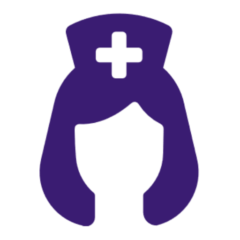Adapting to healthcare advancements: why staying current is essential
The healthcare field is evolving rapidly, driven by new technologies, research breakthroughs, and changes in healthcare policies. For nurses, staying updated on these advancements is not just a matter of professional growth but a critical necessity for providing the best possible patient care. Lifelong learning enables nurses to adapt to these ongoing changes and incorporate the latest evidence-based practices into their work.
New treatments, medications, and medical devices are introduced regularly, and nurses must remain knowledgeable about these innovations to ensure they are administering the most up-to-date care. For example, advancements in telemedicine and remote monitoring require nurses to be proficient in using digital health technologies. Furthermore, as hospitals adopt electronic health records (EHR) and other healthcare IT systems, nurses need to be comfortable navigating these tools to maintain efficient patient documentation and communication with the healthcare team.
The COVID-19 pandemic highlighted the importance of rapid adaptation and learning, as nurses had to quickly absorb new information about the virus, treatments, and safety protocols. This period underscored the need for flexibility and the ability to learn new skills on the job. Lifelong learning equips nurses to manage such crises effectively, ensuring they can respond to healthcare challenges as they arise.
Ultimately, continuous education fosters a culture of safety and quality within the nursing profession. Nurses who engage in ongoing learning are better positioned to provide care that meets the highest standards, reducing the risk of errors and improving patient outcomes.
Continuing education courses: expanding knowledge and expertise
Continuing education (CE) is a fundamental aspect of lifelong learning for nurses. CE courses offer structured opportunities for nurses to expand their knowledge, develop new skills, and stay current with the latest developments in the healthcare field. These courses are available in various formats, including online modules, in-person seminars, and interactive workshops, making it easier for nurses to balance their education with work commitments.
One of the key benefits of CE courses is that they allow nurses to gain expertise in specialized areas of healthcare. For instance, nurses can pursue courses in critical care, oncology, geriatrics, or neonatal care, enabling them to provide more targeted care for specific patient populations. These courses often cover the latest research, treatment protocols, and best practices, ensuring that nurses can deliver care based on the most current evidence.
In many regions, completing a certain number of CE hours is a requirement for maintaining nursing licensure. This ensures that nurses remain competent and up-to-date in their practice throughout their careers. Additionally, CE courses often provide opportunities for nurses to earn certifications in specific areas of expertise, further enhancing their qualifications and career prospects.
Moreover, CE is not just about gaining new technical skills; it also focuses on improving soft skills such as communication, leadership, and teamwork, which are crucial for delivering high-quality patient care. Nurses who actively engage in CE are better equipped to handle complex patient cases, collaborate effectively with colleagues, and take on leadership roles within their organizations.
Nursing conferences: networking and learning from industry leaders
Nursing conferences provide a dynamic platform for nurses to learn about the latest trends and advancements in the field, while also offering valuable networking opportunities. These events bring together healthcare professionals, researchers, and industry leaders from around the world to discuss cutting-edge topics, share research findings, and explore new strategies for improving patient care.
One of the main advantages of attending nursing conferences is the chance to hear directly from experts and pioneers in the field. Keynote speakers often present on groundbreaking topics, such as innovative patient care models, new medical technologies, and emerging trends in healthcare policy. Attendees can participate in workshops, panel discussions, and hands-on sessions that allow them to engage with the material in a practical, interactive way.
Conferences also foster professional development by facilitating networking opportunities. Nurses can connect with peers from different healthcare settings, share experiences, and exchange ideas about best practices. These interactions can lead to lasting professional relationships, mentorship opportunities, and even job offers. Furthermore, conferences often feature exhibitors showcasing the latest medical devices, software, and educational resources, giving nurses a firsthand look at new tools that can enhance their practice.
In addition to learning and networking, nursing conferences often offer continuing education credits, allowing attendees to fulfill their CE requirements while staying engaged with the latest industry developments. By attending conferences, nurses not only expand their knowledge but also contribute to the advancement of the profession by staying at the forefront of innovation and best practices.
Specialized certifications: focusing on specific areas for better patient outcomes
Specialized certifications enable nurses to deepen their expertise in a particular area of healthcare, making them more effective in delivering targeted care. Whether it’s becoming certified in oncology nursing, pediatric care, or wound management, specialized training enhances a nurse’s ability to meet the specific needs of certain patient populations.
For instance, nurses who pursue certification in critical care nursing gain advanced skills in managing complex, life-threatening conditions. This specialized training prepares them to work in high-intensity environments, such as intensive care units (ICUs), where rapid decision-making and technical proficiency are essential for saving lives. Similarly, nurses who specialize in mental health gain the knowledge and skills needed to provide compassionate, effective care for patients with psychiatric conditions.
Certifications not only improve patient outcomes by ensuring that nurses have the latest knowledge in their specialty, but they also open up new career opportunities. Certified nurses are often considered for leadership roles, promotions, and positions in specialized units, giving them a competitive edge in the job market. Additionally, certifications demonstrate a commitment to professional growth, which can enhance a nurse’s credibility and reputation within the healthcare community.
Many certifications require nurses to complete a combination of coursework, clinical practice, and examinations, ensuring that they have both the theoretical knowledge and practical skills needed to excel in their specialty. By pursuing specialized certifications, nurses can advance their careers while making a meaningful impact on patient care.

Balancing professional development with work: overcoming challenges in lifelong learning
While lifelong learning is essential for nurses, balancing ongoing education with work and personal commitments can be challenging. Nurses often work long, demanding shifts, leaving little time for study or attending courses. However, with the growing availability of online learning platforms and flexible education programs, it has become easier for nurses to integrate learning into their busy schedules.
One solution is to take advantage of online continuing education courses, which allow nurses to study at their own pace and from any location. These courses often feature multimedia resources, quizzes, and interactive content, making it possible for nurses to stay engaged even during short breaks between shifts. In addition, many healthcare organizations support their staff’s professional development by offering tuition reimbursement, paid study leave, or in-house training programs.
Another way nurses can manage the demands of lifelong learning is by setting realistic goals and prioritizing their education. For example, rather than trying to complete multiple courses or certifications at once, nurses can focus on one area of professional development at a time. This allows them to maintain a manageable workload while still making steady progress in their careers.
Furthermore, nurses can seek out mentorship opportunities, where experienced colleagues provide guidance and support in balancing work and education. Mentors can help nurses identify the most valuable educational opportunities and offer advice on managing time and stress.
Ultimately, the key to lifelong learning is flexibility and persistence. By taking advantage of the various educational resources available and finding strategies to balance work and study, nurses can continue to grow professionally while providing the highest standard of care to their patients.





